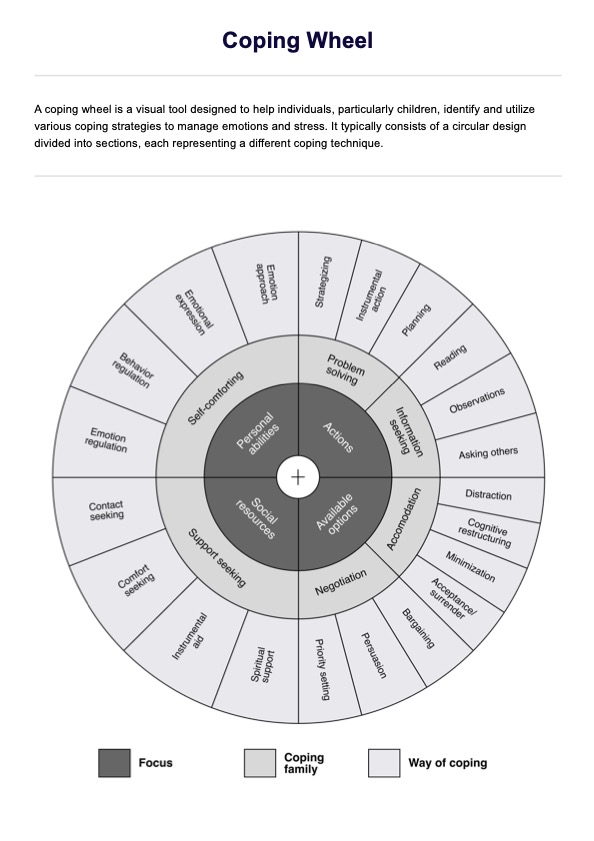Identifying healthy coping strategies is crucial because it equips individuals with tools to effectively manage stress and emotions, improving their ability to handle life's challenges and maintain mental well-being.

Coping Wheel
Download a free Coping Wheel Template to help clients manage stress effectively.
Use Template
Coping Wheel Template
Commonly asked questions
Coping mechanisms can be highly effective when they are well-suited to an individual's specific needs and circumstances. They can promote resilience and reduce the impact of stress on mental and physical health.
Coping strategies may not always be helpful. Their effectiveness depends on the appropriateness of the coping strategy used for the situation and individual, as some may provide temporary relief but not address the underlying issue.
EHR and practice management software
Get started for free
*No credit card required
Free
$0/usd
Unlimited clients
Telehealth
1GB of storage
Client portal text
Automated billing and online payments











